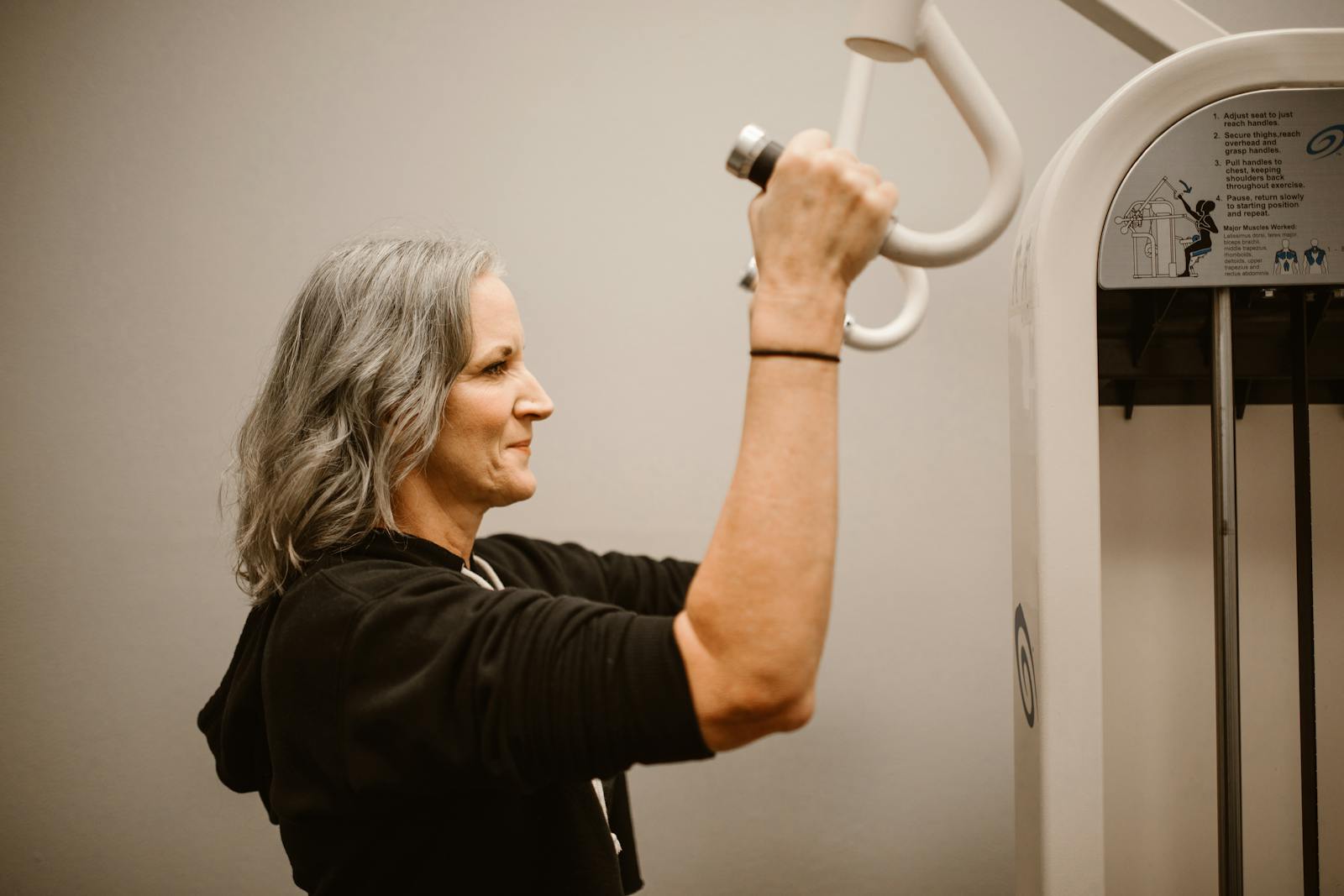Menopause is a natural biological process that marks the end of a woman’s reproductive years. It typically occurs between the ages of 45 and 55, though it can happen earlier or later in some women. Menopause is officially diagnosed after a woman has gone 12 months without a menstrual period. The transition leading up to menopause, known as perimenopause, can last several years and is often accompanied by a range of physical and emotional symptoms caused by fluctuating hormone levels, particularly a decline in estrogen.
The experience of menopause varies widely, but many women face challenges that can significantly impact their quality of life. Understanding the symptoms and ways to alleviate them can help women navigate this transition more comfortably. Below is a comprehensive look at common symptoms of menopause and strategies to alleviate them.
Understanding the Stages of Menopause
Menopause is generally divided into three stages:
- Perimenopause: This is the transitional phase leading up to menopause. It typically begins several years before menopause as estrogen levels start to decline. Symptoms like irregular periods, hot flashes, and mood changes often start during this phase.
- Menopause: Menopause is confirmed when a woman has gone 12 consecutive months without a menstrual period. This stage signifies the end of ovulation and menstruation.
- Postmenopause: This phase follows menopause and lasts for the rest of a woman’s life. Symptoms such as hot flashes may continue, but typically decrease in intensity over time. However, long-term health risks, such as osteoporosis and heart disease, become more significant after menopause due to lower estrogen levels.
Common Symptoms of Menopause
The symptoms of menopause can range from mild to severe and may affect various aspects of a woman’s physical and emotional health. Below are some of the most common symptoms:
1. Hot Flashes and Night Sweats
Hot flashes are sudden feelings of intense heat, often accompanied by sweating, flushing of the skin, and an elevated heart rate. They can last from a few seconds to several minutes and occur at any time, including during sleep (where they are referred to as night sweats).
How to Alleviate Hot Flashes:
- Hormone Replacement Therapy (HRT): Estrogen therapy is the most effective treatment for hot flashes. It works by replacing the estrogen that the body is no longer producing, helping to stabilize hormone levels.
- Lifestyle Changes: Avoid triggers such as spicy foods, caffeine, alcohol, and stress. Wearing lightweight, breathable clothing and keeping your environment cool can help reduce the frequency of hot flashes.
- Phytoestrogens: Foods rich in plant-based estrogens, such as soy products, flaxseeds, and lentils, may help alleviate mild hot flashes by mimicking estrogen in the body.
- Herbal Supplements: Black cohosh, red clover, and evening primrose oil are popular herbal remedies for hot flashes, though their effectiveness varies. Consult with a healthcare provider before using herbal supplements.
2. Irregular Periods
As estrogen levels fluctuate during perimenopause, periods may become irregular, lighter, or heavier than usual. Some women may skip periods altogether for months before they finally stop.
How to Alleviate Irregular Periods:
- Low-Dose Birth Control Pills: For women in perimenopause, low-dose birth control pills can help regulate periods and alleviate symptoms like heavy bleeding or menstrual cramps.
- Intrauterine Device (IUD): A hormonal IUD can help reduce heavy bleeding and regulate periods during perimenopause.
- Non-Hormonal Options: NSAIDs (nonsteroidal anti-inflammatory drugs) like ibuprofen can help manage menstrual pain and reduce heavy bleeding.
3. Vaginal Dryness and Discomfort
Decreased estrogen levels can lead to thinning of the vaginal tissues, reduced natural lubrication, and vaginal dryness. This can make sexual activity uncomfortable or even painful and may lead to itching or burning sensations.
How to Alleviate Vaginal Dryness:
- Vaginal Estrogen Therapy: Low-dose vaginal estrogen treatments, available as creams, rings, or tablets, can effectively restore moisture to the vaginal tissues without significantly affecting systemic hormone levels.
- Moisturizers and Lubricants: Vaginal moisturizers (used regularly) and water-based lubricants (used during sexual activity) can help alleviate discomfort.
- Regular Sexual Activity: Regular sexual activity, including masturbation, can increase blood flow to the vaginal area and help maintain vaginal tissue elasticity.
4. Mood Changes
Fluctuating hormone levels during menopause can contribute to mood swings, irritability, anxiety, and depression. These emotional changes can be challenging, especially when coupled with other menopause symptoms.
How to Alleviate Mood Changes:
- Exercise: Regular physical activity, especially aerobic exercise, can help improve mood by releasing endorphins, which are natural mood elevators.
- Mindfulness and Stress Reduction: Practices such as yoga, meditation, and deep-breathing exercises can help reduce stress and improve emotional well-being.
- Cognitive Behavioral Therapy (CBT): CBT is a form of talk therapy that has been shown to be effective in treating mood swings, anxiety, and depression associated with menopause.
- Antidepressants: For women experiencing severe mood swings or depression, certain types of antidepressants, such as selective serotonin reuptake inhibitors (SSRIs), may be prescribed to help balance mood.
5. Sleep Disturbances
Many women experience difficulty sleeping during menopause, often due to night sweats, anxiety, or hormonal changes that disrupt normal sleep patterns. Insomnia, difficulty staying asleep, or waking up too early are common complaints.
How to Alleviate Sleep Disturbances:
- Create a Sleep-Friendly Environment: Keep your bedroom cool, dark, and quiet. Use breathable bedding and avoid heavy blankets.
- Establish a Sleep Routine: Going to bed and waking up at the same time each day helps regulate the body’s internal clock. Avoid screen time and stimulants (like caffeine) close to bedtime.
- Melatonin Supplements: Melatonin is a hormone that regulates sleep. Taking a low-dose melatonin supplement before bed may help improve sleep quality.
- Herbal Remedies: Valerian root, chamomile tea, or lavender oil may help promote relaxation and improve sleep.
6. Weight Gain and Slower Metabolism
Weight gain, particularly around the abdomen, is common during menopause due to a slower metabolism and changes in body fat distribution. Declining estrogen levels contribute to a reduction in muscle mass and an increase in fat storage.
How to Alleviate Weight Gain:
- Strength Training: Incorporating resistance exercises into your routine helps build muscle mass and increase metabolism, which can counteract weight gain.
- Cardiovascular Exercise: Regular aerobic exercise, such as walking, swimming, or cycling, helps burn calories and improve overall fitness.
- Balanced Diet: Focus on a diet rich in whole foods, including fruits, vegetables, lean proteins, and healthy fats. Avoid processed foods and limit sugar intake to prevent unnecessary weight gain.
- Portion Control: As metabolism slows, reducing portion sizes and avoiding late-night eating can help manage weight.
7. Bone Loss and Osteoporosis
Estrogen plays a critical role in maintaining bone density. After menopause, women are at a higher risk of developing osteoporosis, a condition that causes bones to become weak and brittle.
How to Alleviate Bone Loss:
- Calcium and Vitamin D: Ensure adequate intake of calcium (1,000-1,200 mg/day) and vitamin D (600-800 IU/day) through diet or supplements to support bone health.
- Weight-Bearing Exercise: Activities like walking, jogging, and weightlifting help maintain bone density and reduce the risk of osteoporosis.
- Bone-Strengthening Medications: For women at high risk of osteoporosis, medications such as bisphosphonates (e.g., alendronate) or selective estrogen receptor modulators (SERMs) may be prescribed to help strengthen bones.
8. Hair Thinning and Skin Changes
The drop in estrogen levels during menopause can lead to thinning hair and changes in skin texture. Women may notice that their hair becomes drier or starts to thin, while the skin may become less elastic and more prone to wrinkles.
How to Alleviate Hair and Skin Changes:
- Moisturizers and Hydration: Use hydrating skincare products and drink plenty of water to keep skin looking healthy. Products containing hyaluronic acid, retinoids, and vitamin C can help improve skin texture and elasticity.
- Hair Care: Use gentle, sulfate-free shampoos and conditioners. Minimize heat styling, and consider taking supplements like biotin or collagen to support hair health.
- Hormone Replacement Therapy (HRT): HRT can improve both skin and hair health by restoring some of the estrogen that supports these tissues.
9. Loss of Libido
Decreased libido is common during menopause due to a combination of factors, including vaginal dryness, hormonal changes, and mood disturbances. Many women find that their interest in sex decreases, though this varies from person to person.
How to Alleviate Loss of Libido:
- Hormone Replacement Therapy (HRT): Estrogen therapy can help restore some sexual desire, especially if vaginal dryness and discomfort are contributing to the problem.
- Testosterone Therapy: Though not widely used, some women benefit from low-dose testosterone therapy to boost libido. This should only be done under a doctor’s supervision.
- Communication and Intimacy: Open communication with your partner about desires and concerns can help improve emotional intimacy, which can have a positive impact on libido.
Long-Term Health Considerations Post-Menopause
While many menopause symptoms will subside over time, there are long-term health considerations that women need to be mindful of as they enter postmenopause:
1. Cardiovascular Health
After menopause, the risk of cardiovascular disease increases due to the loss of estrogen, which helps protect the heart and blood vessels. Maintaining a heart-healthy lifestyle is essential.
- Diet: Focus on a heart-healthy diet rich in fruits, vegetables, whole grains, and omega-3 fatty acids.
- Exercise: Regular aerobic exercise is key to maintaining heart health.
- Regular Checkups: Monitoring cholesterol, blood pressure, and blood sugar levels helps manage heart disease risk.
2. Cognitive Health
Some studies suggest a link between menopause and an increased risk of cognitive decline, including conditions like Alzheimer’s disease. Keeping the brain active is important.
- Mental Stimulation: Engage in activities that challenge the brain, such as puzzles, reading, or learning new skills.
- Physical Activity: Regular exercise improves blood flow to the brain and may help reduce the risk of cognitive decline.
3. Emotional Health
Menopause can be an emotionally challenging time. Seeking support from loved ones or professionals can be valuable.
Counseling and Support Groups: Talking with a therapist or joining a menopause support group can help women feel less isolated and better equipped to manage the emotional challenges of this life transition.
Conclusion
Menopause is a natural phase in a woman’s life, but the symptoms associated with it can be challenging. From hot flashes and mood swings to vaginal dryness and bone loss, the effects of menopause can impact a woman’s quality of life. However, there are numerous strategies, from lifestyle changes and dietary adjustments to medical treatments, that can alleviate these symptoms and help women navigate this transition more comfortably.
By understanding the changes happening in the body and seeking appropriate support, women can manage their symptoms and continue to live vibrant, healthy lives during and after menopause.




